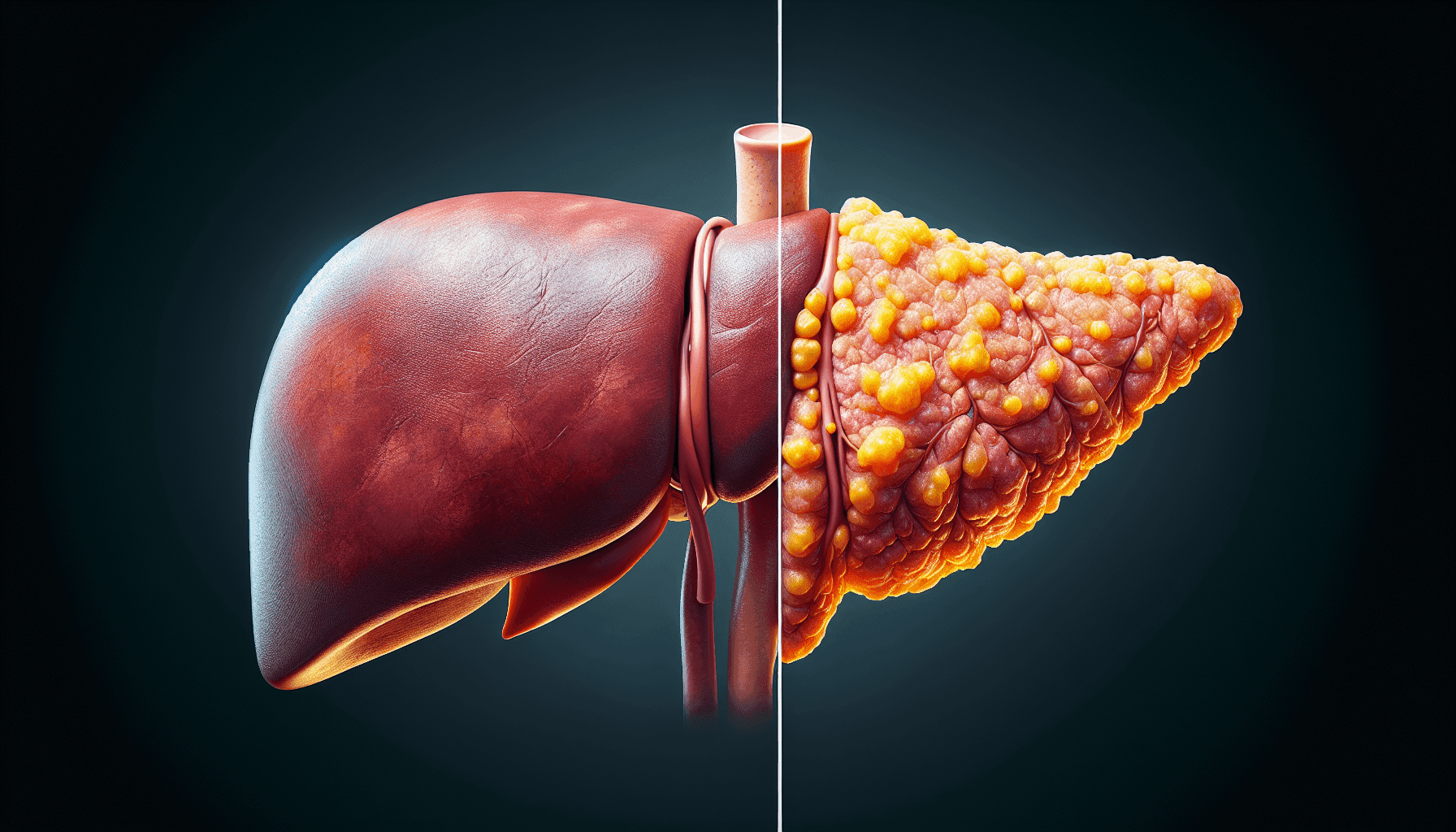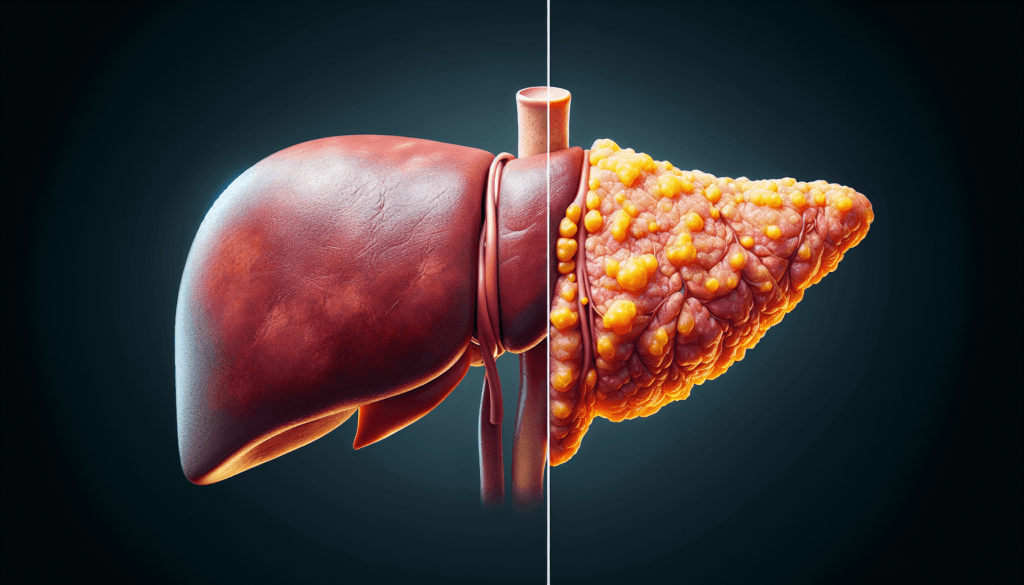What comes to mind when you think about aging and its effects on your body? It’s a complex and natural process that encompasses various changes, some of which you might not even notice until later in life. But have you ever wondered how aging can contribute to the development of conditions like fatty liver disease? Let’s embark on this informational journey to better understand the intricate relationship between natural aging and the likelihood of developing a fatty liver.
Understanding Fatty Liver Disease
Before delving into the aging aspect, it’s crucial to grasp the basics of fatty liver disease itself. The liver is an essential organ responsible for numerous functions, including detoxification, protein synthesis, and the production of biochemicals necessary for digestion. Fatty liver disease occurs when fat builds up in the liver cells, potentially leading to inflammation and scarring.
Types of Fatty Liver Disease
Fatty liver disease is broadly categorized into two types:
-
Non-Alcoholic Fatty Liver Disease (NAFLD): This is the most common form, often occurring in people who consume little to no alcohol. NAFLD can progress to more severe liver conditions if left unmanaged.
-
Alcoholic Fatty Liver Disease (AFLD): As the name suggests, this type is linked to excessive alcohol consumption, which damages liver cells over time.
NAFLD is especially prevalent across various age groups, and understanding its connection with aging can be eye-opening.
The Aging Process and Your Liver
Aging is a universal experience, characterized by gradual changes in the body’s systems and organs. With age, your liver undergoes physiological changes such as decreased size and blood flow, which can impact its functionality.
How Aging Affects Liver Function
As you age, several changes occur:
-
Reduced Liver Size and Blood Flow: The liver tends to decrease in size as you grow older, alongside a reduction in blood flow. This can lead to diminished liver function, affecting its ability to process substances effectively.
-
Slower Metabolic Processes: The liver’s metabolism of drugs and other substances slows down, making it more susceptible to damage from toxins and less efficient at lipid metabolism.
-
Increased Susceptibility to Fat Accumulation: Natural changes in hormone levels, combined with lifestyle and dietary habits, can increase the likelihood of fat storage in the liver.
These age-related changes create a backdrop for the potential development of fatty liver disease as you age.

Risk Factors Associated with Aging
While aging alone can be a contributing factor, it’s often combined with other risk factors that can enhance your susceptibility to fatty liver disease.
Common Risk Factors
As you age, you might notice the onset of various conditions that increase the risk of developing a fatty liver:
-
Obesity: Excess body weight contributes to fat buildup in the liver. Aging often correlates with weight gain due to metabolic changes.
-
Type 2 Diabetes: Older adults are more prone to insulin resistance, a precursor to type 2 diabetes, which is a significant risk factor for NAFLD.
-
Hypertension: High blood pressure often accompanies aging and can exacerbate liver disease progression.
-
Medications: Many medications prescribed to older adults can impact liver function, potentially leading to fat accumulation.
Let’s take a closer look at how these factors interplay with the aging process to influence fatty liver disease development.
The Interplay Between Lifestyle Choices and Aging
Lifestyle choices play a remarkable role in aging and can significantly impact liver health. Maintaining a healthy lifestyle can mitigate some of the adverse effects of aging.
Diet and Nutrition
A balanced diet is crucial as you age. It’s not just about calorie intake but also about consuming the right nutrients to maintain liver health:
-
Antioxidants: Foods rich in antioxidants can combat oxidative stress, which increases with age and can damage liver cells.
-
Healthy Fats: Incorporating omega-3 fatty acids can help reduce liver fat levels.
-
Limited Sugar Intake: High sugar intake contributes to liver fat deposits, so it’s important to watch out for hidden sugars in processed foods.
Physical Activity
Regular exercise is vital to counteract the natural decline in metabolism and muscle mass that accompanies aging:
-
Aerobic Exercise: Activities like walking or swimming can help in reducing liver fat.
-
Strength Training: This type of exercise builds muscle mass and aids in better metabolic health, which can reduce the risk of developing NAFLD.
Aging is inevitable, but by making mindful lifestyle choices, you can support your liver health and reduce the risk of disease.

Monitoring Liver Health as You Age
Regular health check-ups become increasingly important with age. Monitoring your liver health can help catch potential issues early.
Essential Liver Function Tests
Liver function tests (LFTs) are crucial in assessing the health of your liver. These tests include:
-
Alanine Aminotransferase (ALT): A higher level can indicate liver damage.
-
Aspartate Aminotransferase (AST): High values may suggest liver inflammation.
-
Alkaline Phosphatase (ALP) and Gamma-Glutamyl Transferase (GGT): Elevated levels can indicate bile duct issues or liver damage.
Regular monitoring of these enzymes can provide insights into your liver health, especially as you age.
Medical Interventions and Aging
In some cases, lifestyle modifications alone might not sufficiently manage fatty liver disease. Medical interventions may be necessary:
Potential Treatments
Medical treatments can vary based on the severity of the disease and underlying conditions:
-
Prescription Medications: Certain medications can help manage liver fat levels and treat associated metabolic conditions.
-
Surgical Interventions: Although rare, surgical options like bariatric surgery may be explored in severe cases to reduce liver fat by addressing obesity.
-
Ongoing Research: Continuous research is aiming to develop targeted therapies for fatty liver disease, particularly focusing on the aging population.
Your healthcare provider can guide you through available options tailored to your condition.

Protecting Your Liver as You Age
Aging doesn’t have to mean succumbing to fatty liver disease. There are proactive steps you can take to protect your liver and maintain overall well-being.
Tips for a Healthy Liver
- Stay Hydrated: Water helps maintain hydration and supports liver function.
- Avoid Alcohol: Reducing or eliminating alcohol consumption can lower your risk of liver disease.
- Balanced Diet: A nutrient-rich diet can provide the necessary support for your liver to function optimally.
- Regular Exercise: Keeping active can lower fat deposits in the liver and improve overall health.
Consult a Healthcare Professional
If you’re concerned about aging and its impact on your liver health, it might be beneficial to consult a healthcare professional who can provide personalized advice based on your medical history and lifestyle.
Conclusion
Aging is a natural part of life, bringing with it a series of changes that can influence your health in various ways, including the risk of developing fatty liver disease. By understanding the connection between aging and liver health, you can make informed choices to protect and improve your liver function as you age. It’s about taking one step at a time, being mindful of your lifestyle, and seeking guidance when necessary. The goal is to age gracefully, with a liver that supports your journey every step of the way.

